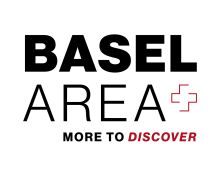
Four startups are making strides in developing novel solutions for challenging medical conditions, potentially offering new hope for patients. Alentis Therapeutics and Abionic have received approval from the US Food and Drug administration, paving the way to advance to the next stage. Meanwhile, Anokion and Santhera have recorded positive results from their clinical studies.
Alentis Therapeutics, a clinical-stage biotech company focused on developing treatments for cancer and fibrosis, has received FDA clearance for an Investigational New Drug (IND) application for ALE.P02, a novel anti-CLDN1 ADC targeting squamous cancers1. The antibody-drug conjugate combines a tubulin inhibitor with an antibody targeting a specific CLDN1 epitope on cancer cells1. The company plans to initiate a Phase 1/2 clinical trial in patients with CLDN1+ squamous tumors in Q1 20251. ALE.P02 shows promise for treating squamous cancers of the head and neck, cervix, esophagus, and lung, where CLDN1 is often overexpressed. This development marks a significant advancement in Alentis' oncology pipeline, with another ADC program, ALE.P03, planned for clinical trials in 20251.
For Abionic, the FDA clearance was approved for its IVD CAPSULE PSP test, designed for the early detection of sepsis. This test measures Pancreatic Stone Protein (PSP) levels in human blood, providing results in just five minutes. The CAPSULE PSP test has shown superior performance compared to other biomarkers in identifying sepsis risk. Abionic's technology allows for rapid and accurate sepsis diagnosis, potentially improving patient outcomes and reducing healthcare costs. The FDA clearance marks a significant milestone for Abionic and opens up opportunities in the US market for sepsis management.
Positive results
Anokion is a biotechnology company focused on developing treatments for autoimmune diseases. The company recently announced promising results from their Phase 1 MoveS-it study for ANK-700, a potential disease-modifying treatment for relapsing-remitting multiple sclerosis (RRMS). ANK-700 is an investigational therapy that features a novel myelin immuno-domain conjugated to a glycosylation signature designed to re-educate the immune system. By inducing antigen-specific tolerance to myelin-based autoantigens, ANK-700 aims to reduce neuroinflammation in the brain and spinal cord while preserving overall immune function. The study demonstrated that ANK-700 was well-tolerated and showed early signs of efficacy in RRMS patients. ANK-700 works by selectively targeting and eliminating autoreactive T cells, which are responsible for the immune system's attack on myelin in multiple sclerosis. According to Deborah Geraghty, CEO of Anokion, this data demonstrates clinical proof of concept, safety, and biological activity of ANK-700, emphasizing its ability to become a differentiated, safe, and tolerable treatment option for RRMS.
Santhera Pharmaceuticals, which develops therapies for rare neuromuscular and pulmonary diseases with high unmet medical need, has also reported positive results from their Phase 2b study of vamorolone in Duchenne muscular dystrophy (DMD). Vamorolone is a novel anti-inflammatory drug candidate that aims to preserve muscle function and reduce side effects compared to traditional corticosteroids. The study met its primary endpoint, showing significant improvement in time to stand from supine position compared to placebo.
(Press release/RAN)

 The new Swiss Venture Capital Report was published on 26 January. It analyses 304 financing rounds closed in 2020 and includes further article such as an interview with Michael Hengartner, President of the ETH Board, and a list of Swiss "soonicorns".
The new Swiss Venture Capital Report was published on 26 January. It analyses 304 financing rounds closed in 2020 and includes further article such as an interview with Michael Hengartner, President of the ETH Board, and a list of Swiss "soonicorns". 




















































Please login or sign up to comment.
Commenting guidelines